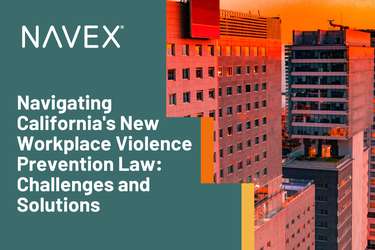This article originally appeared in our Top 10 Ethics & Compliance Predictions & Recommendations for 2018
Today, the chasm that divides us feels deeper than it has felt in the past several decades. Our debates today aren’t just about big government or little government or whether we should fund a new school building; they are about race, gender, sex, sexual orientation, gender identity, national origin, and religion – and people’s right to fair treatment, protection and the rights and benefits enjoyed by others. And often, our conversations fuel and highlight the differences among us rather than bring us closer together.
Individuals are finding ways to express themselves through action such as attending protests and rallies, and showing solidarity through common behaviors like taking a knee.
These conversations are happening everywhere (and yes, this means they are happening in your workplace as well). Individuals are finding ways to express themselves through action such as attending protests and rallies, and showing solidarity through common behaviors like taking a knee. And they are expressing themselves through speech by commenting on social media, posting images and content, joining online groups, and debating at work. This past year has given us a lot to talk about – from religion, terrorism, immigration, race equality, justice, harassment, and equal treatment.
Often opinions are fueled by personal beliefs, religious teachings, and experiences. And while discussion is healthy and necessary, it can get heated and disrespectful quickly. Skeptical? Read the comments section of any online post about a controversial topic, and you’ll get a sense about what people are really thinking – the comments and the heated nature of the interactions would easily be considered offensive or inappropriate in any workplace.
In addition, social media has eradicated any line of demarcation between work and personal life. If you have a social media presence, your “private” life is now very public.
Read More: When the Virality of Social Media Mixes with the Fragility of Trust
This is the new norm. Things are not going to change any time soon. Employees will continue to bring these conversations into their workplaces (virtually and personally). These heated exchanges can damage workplace relationships, and give rise to claims of harassment and discrimination.
Simply put, the workplace is not the best forum for these conversations, and now is the time for employers to address it head-on.
Key Steps for Companies to Take
Employers need to learn how to manage discourse while maintaining their culture, and at the same time help their employees navigate these challenging times. There are a couple of important things to keep in mind as an employer:
- First, consult with a lawyer; there are a lot of laws that can come into play when you are dealing with speech and behavior
- You have a responsibility to foster the culture you want for your employees – elevate the importance of respectful communication
- Don’t take sides – unless you are in the business of taking sides or it’s critical to your business
- Create a workplace that is safe and respectful. Quickly and professionally address any inappropriate discussions
- Train your managers so they know how to handle heated disputes at work
- Train your employees so they understand that unfettered speech at work is not OK, and it has consequences. Remind employees about key policies, including your harassment, workplace violence, and business conduct policies
- Be prepared to handle incidents involving employees who engage in offensive conduct off-duty; whether you chose to make it your business or not, you must own your decision.
Taking these steps will help organizations ensure that they are demonstrating their commitment to a healthy corporate culture and fostering an environment of ethics and respect in the workplace – no matter what’s going on in the world around us.
Manager Training: Compliance Training Courses for Managers








